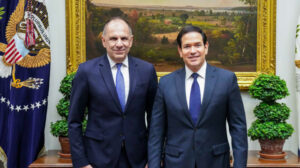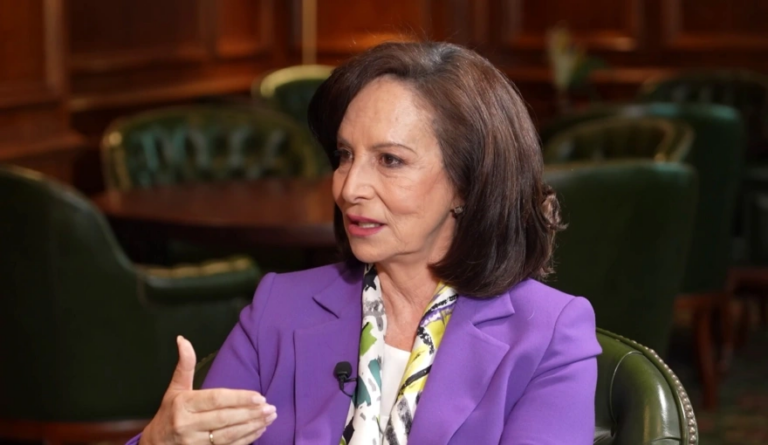The ten dominant trends worth watching in the world this year were listed by Tom Standage, editor-in-chief of The Economist’s annual forecasting publication, at the Gala Dinner held in Athens as part of the launch of The Economist’s annual exclusive publication for Greece and Cyprus “THE WORLD IN 2025”.
The trends are as follows:
1. America’s choice
The consequences of Donald Trump’s decisive victory will affect everything from immigration and defense to the economy and trade – on a global scale.
2. Voters expect change
The incumbent parties did poorly in the 2024 election. 2025 will be a year of expectations. Can the new leaders deliver what they promised? Will the defeated leaders change?
3. Wider disorder
America’s more transactional stance on alliances will embolden China, Russia, Iran and North Korea (the “chaos quartet”).
4. Tariff prospects
America’s rivalry with China will manifest itself in the form of a trade war as Trump imposes restrictions and increases tariffs – even on America’s allies.
5. The clean tech boom
China’s government has encouraged a boom in exports of solar panels, batteries and electric vehicles to offset a weak domestic economy. The world will soon find out if global emissions have peaked.
6. After inflation
Western economies now face a new challenge: reducing deficits. Many may also need to increase their defence budgets. Painful economic choices are lurking.
7. Age issues
World leaders are aging along with their populations. A greying world brings challenges – but is the “silver economy” really a business opportunity?
8. Crunch time for artificial intelligence (AI)
Over $1 trillion is spent on AI infrastructure, but very few companies actually use the technology. Is this the biggest risk in business history?
9. Travel problems
Conflicts are disrupting global air travel. Europe is adding new border controls and Schengen is fading. The backlash against “overtourism” will diminish in 2025, but restrictions introduced by many cities will remain.
10. Life full of surprises
A great lesson 2024 taught us was to expect the unbelievable. What thing that sounds unlikely could happen in 2025? A major solar storm? A new pandemic?
Hatzidakis: Goals exceeded in 2024 – Targets for 2025
“Greece continues to be one of the few sources of good news in a turbulent international environment, in terms of both the economy and political stability,” Kostis Hatzidakis, the Minister of Economy and Finance, Kostis Hatzidakis, said from the podium of the Economist. Referring to his ministry’s report for 2024, he said there was an overachievement of fiscal policy targets, with a 3% primary surplus and a nearly balanced budget. He also said that the tax reform was implemented, with 11 government initiatives that yielded €2 billion in additional revenue due to tackling tax evasion. He also said that the disinvestment of the HFSF from banks was completed, that 13 privatisations were carried out as of June 2023 and that new investment incentives were introduced.
For 2025, the minister focused on: a) Further strengthening investment, which has seen a cumulative 64% increase over the 5 years. (In this context, he also referred to reforms that will favour the business environment, he said, e.g. completion of the land registry, speeding up the administration of justice, better access to finance for businesses by enhancing competition in the banking system, etc.). b) Supporting exports, which he said reached record levels for Greece in 2024. c) Strengthening competition, with government interventions where monopolistic practices appear. d) Strengthening competitiveness, with restraint
Ask me anything
Explore related questions





